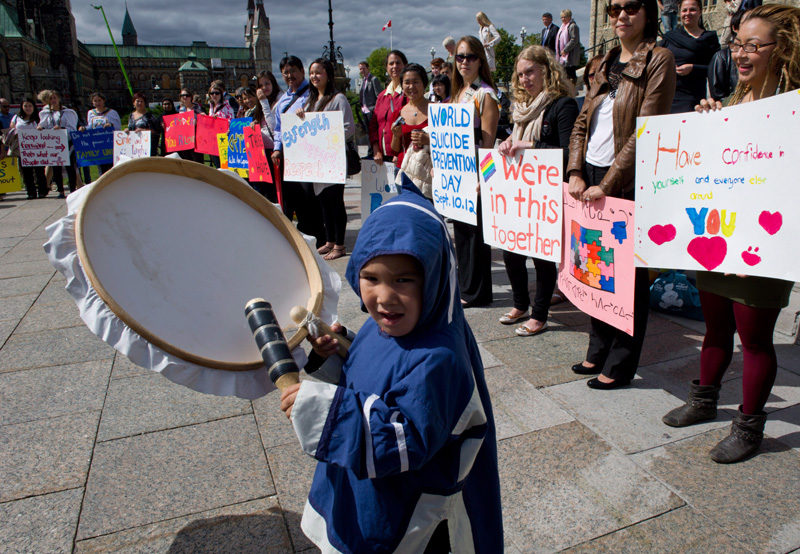Off-reserve native people, Métis and Inuit are much more troubled by suicidal thoughts than the rest of the population, a study released today by Statistics Canada shows.

That’s about twice the rate of the non-aboriginal population.
A 2012 survey showed that about 20 per cent of people in the three aboriginal groups studied had experienced suicidal thoughts, compared to 11 per cent of non-aboriginal men and 13 per cent of non-aboriginal women.
READ MORE: Our coverage of First Nations issues
The data reflects higher rates of completed suicide among aboriginal people: one study showed Inuit suicide rates as 10 times higher than the Canadian population overall.
“There has been a lot of research on the rates of suicide itself, which are higher among First Nations, Inuit and Metis, and we know that suicidal thoughts precede attempted suicide or completed suicide,” said Mohan Kumar, the study’s principal author.
The study found that suicidal thoughts were more common among people with a cluster of other behaviours or situations: mood disorders, drug use and a sense of low self-worth were associated with suicidal thoughts, as was not being in a relationship.
“They are all interconnected, and there’s lots of research to show that they are interconnected. With the data that we have, we can’t draw any inferences on what is a cause and what is an effect.”
These are also risk factors for suicidal thoughts for non-aboriginal people, but they occur more commonly among aboriginal people.
“We found an association between the individual having attended a residential school, or their parents or grandparents having attended a residential school, and having suicidal thoughts,” Kumar said.
The study didn’t look at the deeper roots of the problem: “With this kind of analysis, it isn’t possible to say what the reasons are for the higher rate that we see among First Nations and Metis – I think that will require more study,” Kumar said.
- Canadian man dies during Texas Ironman event. His widow wants answers as to why
- On the ‘frontline’: Toronto-area residents hiring security firms to fight auto theft
- Honda’s $15B Ontario EV plant marks ‘historic day,’ Trudeau says
- Canadians more likely to eat food past best-before date. What are the risks?




Comments